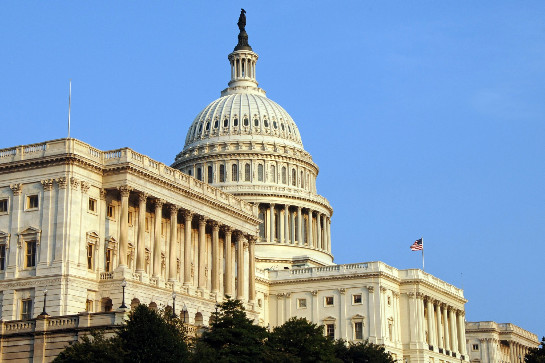
Appropriators: DoD Should Plan for Climate Change
On June 22, the House Appropriations Committee published their report to accompany the 2018 Military Construction and Veterans Affairs Appropriations Bill (H.R. 2998).
The report includes strong language directing the Department of Defense to take into account the impacts of climate change, both “as a driver of instability” and as a threat to the military’s infrastructure. Noting the 2015 report to Congress about the national security implications of climate change, the report asks the Secretary of Defense to report back to Congress (not later than 120 days after enactment of this Act) on the “adaptation strategies developed for vulnerable installations.”
Furthermore, the report includes strong support for the Department of Defense to continue its work planning for the impacts of climate change. In a section titled “Climate and Security for Military Installations” the report states:
The Department of Defense must pay close attention to potential adverse impacts of climate change as a driver of instability. From sea level rise to increased drought and flooding across the country and the world, proper defense planning must include considerations related to climate change impacts. The Committee urges the Secretary of Defense to plan infrastructure and other projects using the best available data and science on climate change to mitigate risks to our armed forces serving domestically and abroad.
This language was included in the report after a request letter was sent to the Appropriations Committee by six Republican Representatives: Curbelo (FL), Faso (NY), Costello (PA), Fitzpatrick (PA), Bacon (NE), and Meehan (PA). In their letter, they specifically reference Naval Station Norfolk, and the challenges of sea level rise and flooding.
The American Security Project has long worked to highlight the important work the Department of Defense has done to prepare for the impacts of climate change – and to show where they need to do more. We know that climate change poses threats to national security, both at home and abroad, by acting as a “threat multiplier.” Just as we expect our national security professionals to prepare for more traditional threats like terrorism or antagonist states, we should expect them to also prepare for the effects of a warming planet. No matter your ideology, it is good risk management to “use the best available science” (as the House Report requires) to plan for threats. In his testimony, Secretary Mattis has reaffirmed his intention that the military continues to prepare for the impacts of climate change.
The military should be free to identify and prepare for all threats to national security. Kudos to the House Appropriations Committee and to those 6 Republican Members of Congress for supporting their action.
UPDATE (6/28/17): On June 28, the House Armed Services Committee approved an amendment to the National Defense Authorization Act affirming that climate change is a threat to security, and requesting the Department of Defense to report back on the issue.






